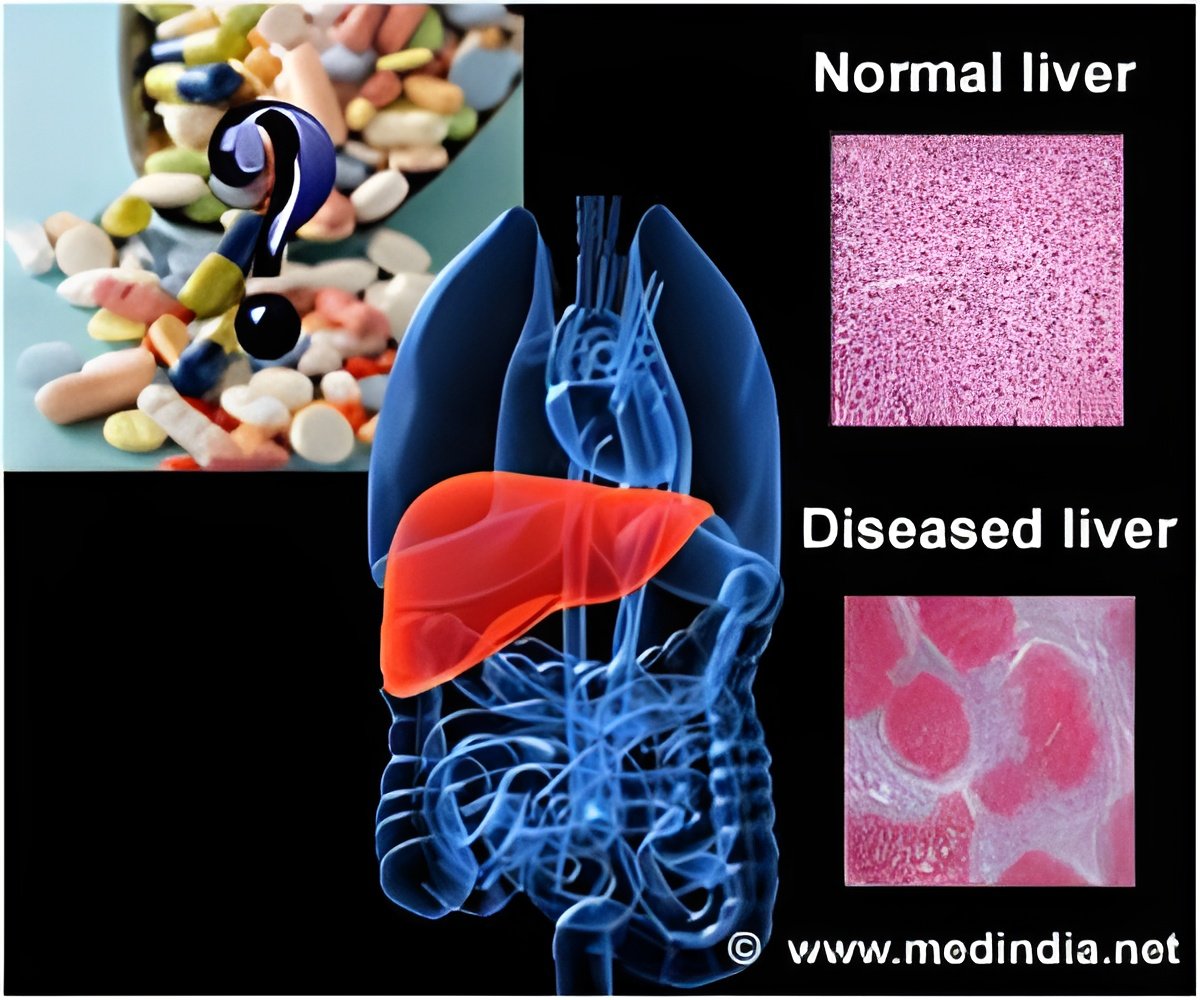Results from a recent study indicate that addition of N-acetylcysteine to prednisolone may not improve survival at the end of 6 months in patients with severe alcoholic hepatitis.

Researchers investigated whether the addition of a drug N-acetylcysteine to steroids could possibly improve survival in these patients. N-acetylcysteine has antioxidant properties and is currently used to protect the liver during acetaminophen (paracetamol) overdosage. It is also used to reduce thickness of mucus secreted in certain lung conditions.
The study was conducted on 174 patients in France. The patients were divided into two groups: One group was given the steroid prednisolone and the second group received prednisolone plus N-acetylcysteine. Prednisolone was administered for 28 days for all patients; patients in the second group also received N-acetylcysteine for the first five days. The patients underwent initial examination, laboratory and other tests. They were followed up for a period of 6 months or till death, whichever was earlier.
In the study, the percentage of deaths or mortality rate in the 2 groups, prednisolone – only and prednisolone plus N-acetylcysteine were 24% and 8% respectively at the end of 1 month, 34% and 22% respectively at the end of 3 months, and 38% and 27% respectively at the end of 6 months.
At the end of 6 months, 22% deaths from the prednisolone-only group were due to hepatorenal syndrome in contrast to 9% in the prednisolone-N-acetylcysteine group. Though more patients in the prednisolone-only group suffered from infections during the 6-month period, deaths due to infections were similar in the two groups.
These results indicate that the combination of prednisolone plus N-acetylcysteine does not improve survival over 6 months compared to prednisolone alone. There was however, a better survival rate in the group taking the combination at the end of 1 month. The authors suggest that this improvement could be partly due to the beneficial effect on hepatorenal syndrome (a condition where the liver disease results in kidney damage).
Thus, though the study could not demonstrate an improved survival in patients taking a combination of prednisolone and N-acetylcysteine at the end of 6 months, the researchers say that it is possible that a larger study with perhaps a longer duration of injectable N-acetylcysteine followed by oral administration could produce contrary results. Further studies are required to establish the benefit of the combination in alcoholic hepatitis, if any.
1. Eric Nguyen-Khac et al for the AAH-NAC Study Group. Glucocorticoids plus N-Acetylcysteine in Severe Alcoholic Hepatitis. N Engl J Med 2011; 365:1781-1789.
Source-Medindia
 MEDINDIA
MEDINDIA



 Email
Email










